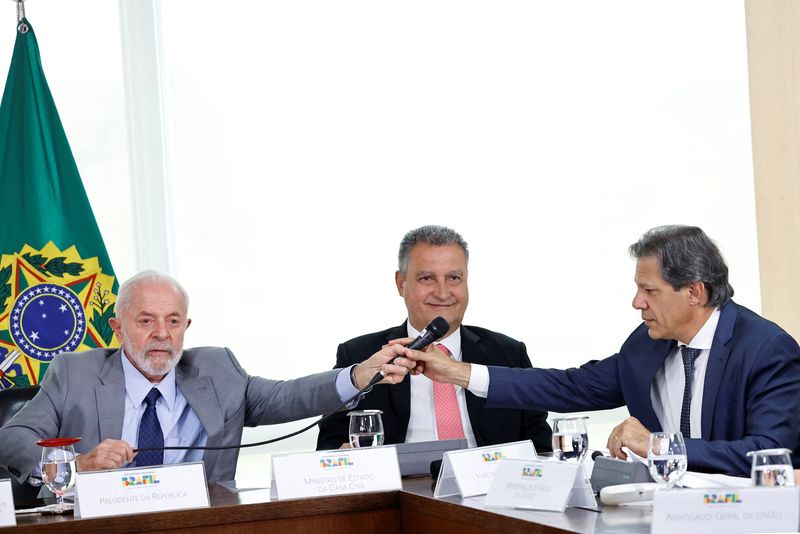BRASILIA (Reuters) - Brazil's government continued high-level discussions on Tuesday towards the announcement of anticipated spending control measures seen as crucial for sustaining fiscal rules, though it has not disclosed when they will be unveiled.
Chief of Staff Rui Costa was scheduled to meet with the ministers of social security and social development in the afternoon to advance talks on new fiscal measures, according to a statement from Costa's office.
Finance Minister Fernando Haddad previously said the measures sought to prolong the lifespan of a new fiscal framework signed by President Luiz Inacio Lula da Silva last year, which pairs primary budget balance targets with a cap that limits expenditure growth to up to 2.5% above annual inflation.
Important mandatory spending, such as pensions and certain social benefits, have been increasing at a much faster pace, squeezing room under the overall cap for other types of expenses, such as administrative costs.
Economists warn this could make the framework unsustainable within a few years, undermining its ability to control public debt growth.
Haddad presented the proposals under discussion to Lula and other cabinet members during a meeting on Monday (NASDAQ:MNDY).
Ahead of the meeting, he said the measures - highly anticipated by markets but details of which would only be disclosed with approval from leftist President Lula - could be announced this week.
A source familiar with the discussions told Reuters on Tuesday that the involvement of several ministers underscores the government's willingness to "put everything on the table" and that an announcement should happen soon.
Signs that the government is preparing to introduce the measures supported the Brazilian real against the U.S. dollar on Monday and helped lower long-term interest rates.

Both had faced intense pressure in recent months amid fiscal concerns domestically and a volatile global environment, recently impacted by risk-asset fluctuations with U.S. election uncertainty.
At the start of Tuesday's session, the real was trading nearly flat.